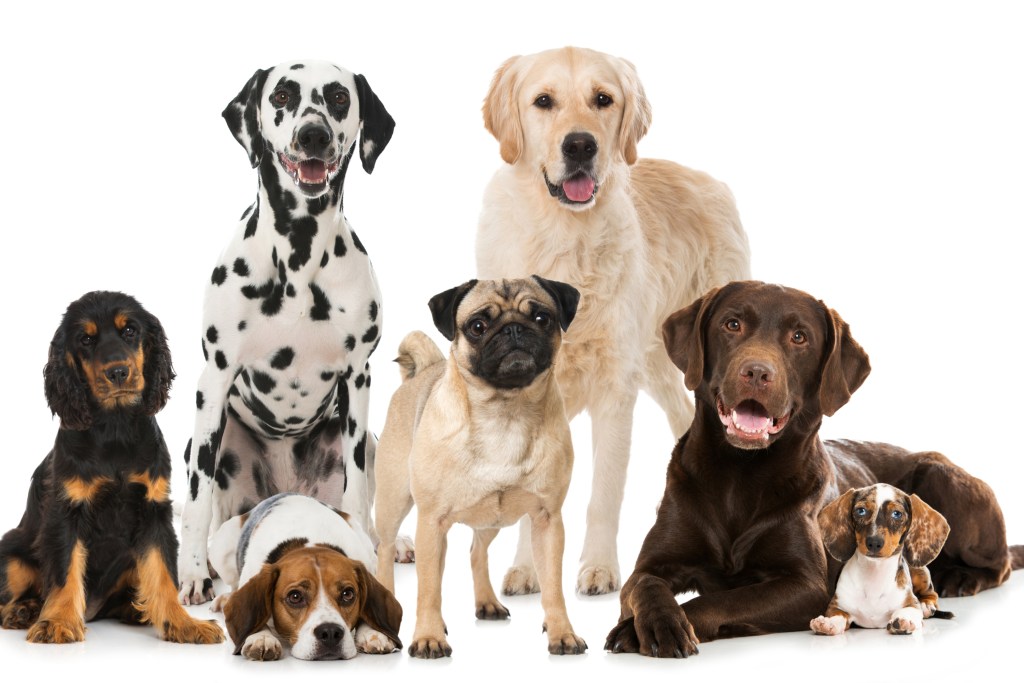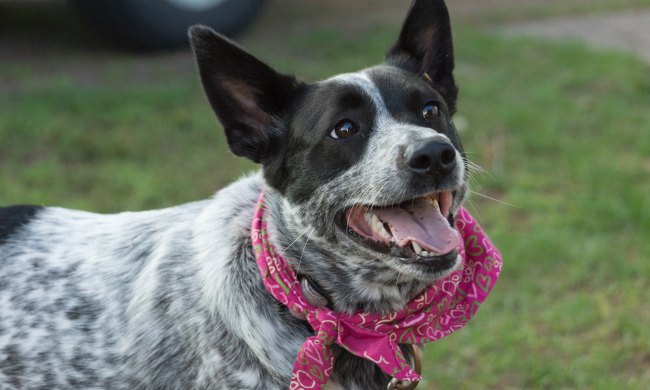We all know the stereotypes: Labradors and golden retrievers are lovable and affectionate, poodles are prissy, and Rottweilers are mean and aggressive (and let’s not get started on the undeserved reputation pit bulls have).
But pet parents of dogs whose breeds have seriously negative stereotypes know the truth: Rottweilers, Doberman pinschers, and Chihuahuas can be warm, happy animals who are beloved members of the family. And now we’ve got the science to back that up. A study recently published in the journal Science sheds some light on how much dog breed affects personality. (Hint: Not that much.)

How much does dog breed affect personality?
Researchers surveyed 18,000-plus dog owners and analyzed the genomes of more than 2,000 purebred and mixed-breed dogs to answer this question. What did they find? In short, the study concluded that dog breed is a poor indicator of a dog’s personality.
Dog breed is a better indicator of physical traits than behavior
A dog’s breed is certainly an indicator of physical traits, but behavioral traits were much more varied and dependent on the individual dogs. According to the study, while most behavioral traits are heritable, “breed offers little predictive value for individuals, explaining just 9% of variation in behavior.”
Researchers found 11 regions on the canine genome that were associated with behavior, including howling frequency and how sociable a dog is with humans. They found that none were specific for dog breed. In comparison, regions associated with aesthetic or physical traits were “unusually differentiated” in breeds.
Some behavioral traits are slightly more aligned with breed than others
How heritable a behavioral trait is was also a factor. For instance, biddability, or how well dogs respond to commands, is considered a more-heritable, breed-differentiated trait. The study found that for these traits, knowing a dog’s breed can make predicting their likeliness to have that trait more accurate.
On the other hand, when it comes to less-heritable traits, like how easy it is to provoke a dog with frightening stimuli, knowing a dog’s breed is essentially useless.
Importantly, the study found that “no behaviors are exclusive to any breed.” For example, while 78% of pet parents who had Labrador retrievers confirmed they never howled, 8% did. Some 90% of confirmed greyhounds never buried their toys, but three pet parents reported that their greyhounds buried their toys all the time.

Determining the personality of a dog
Researchers created a dashboard to demonstrate what value breed has in determining the behavioral and physical traits of a dog. For instance, the dashboard points out that if a pet parent wanted a dog who was friendly, easy to train, and had long, soft fur, most people would opt for a golden retriever. However, only 32% of golden retrievers studied were described as both friendly and easy to train, reinforcing how each dog is an individual.
Dog breed doesn’t matter much when it comes to your dog’s personality. If you’re looking for a large dog who needs long, physical walks every day or a small dog content to live in your small apartment, by all means, consider the breed. But when it comes to a dog’s personality, it varies based on the individual. So go ahead — spend some time at your local shelter and get to know your future pup. If you’re purchasing a puppy from a breeder, be sure to spend a bit of time with both parents (if possible) to get a better idea if what to expect as your dog ages.


